- Hey Dullblog Online Housekeeping Note - May 6, 2022
- Beatles in the 1970s: Melting and Crying - April 13, 2022
- The Beatles, “Let It Be,” and “Get Back”: “Trying to Deceive”? - October 22, 2021

Jude Southerland Kessler, author of series of books on the life of John Lennon.
NANCY CARR • As the Beatles’ story is told and retold, the line between fact and fiction can grow vanishingly thin, and that’s why this interview with author Jude Southerland Kessler alarms me. She’s currently promoting volume three of a projected nine-book Lennon project she hopes will be “John’s ultimate biography.” Kessler is writing Lennon’s life in novelistic style, basing the narrative on fact while fleshing out conversations and scenes. Here’s what concerns me: she insists her books are equivalent to conventionally researched and presented biographies, and calls people who think otherwise “uninformed.”
Call me “uniformed,” but I adamantly believe that once an author includes invented dialogue and details in a book, she’s no longer writing nonfiction. The distinction matters because there is a vital difference between what we can know for sure (i.e., the Beatles were in Studio 1 on this date, recorded these songs, and engaged in this conversation, which we have on tape) and what we can’t (i.e., here are George Harrison’s thoughts during the session, here’s what Ringo said to Maureen at home later). In my opinion, writing that blurs this difference—however well-intentioned, as it seems to be in Kessler’s case—is dangerous. I also think it’s ethically dodgy, particularly when some of the protagonists (in this case, especially John Lennon and George Harrison) are no longer around to respond to the thoughts or words being attributed to them.
In the interview, Kessler leans hard on the legitimately impressive amount of research she does for the books and the footnotes and documentation she appends to them. However, research doesn’t address the central issue: the narrative is a blend of what can be factually documented and what Kessler has imagined, and within the running text there is no way for the reader to tell which is which. That Kessler is basing what she imagines on thorough research doesn’t alter the fact that what she’s adding is fiction. That doesn’t make it bad, it just describes the genre accurately.
Asked about having to create some conversations, Kessler says this about a sample chapter of She Loves You:
“Well, some of the conversation is created…because as you’ll see in the chapter, a great deal of the conversation is footnoted, so it’s actually what they said. In the recording session chapters, ALL of the conversation is exactly what they said, taken from the EMI tapes. So, as much as possible, I use their real words; only some of the conversation is created.”
To my mind, this blending of conversation taken from a verifiable external source with conversation that is invented, with nothing in the narrative itself to mark the distinction, is exactly the problem. However many interviews Kessler does, however many sources she reads, and however many footnotes she writes, there is no getting away from the fact that some portion of this “history” exists solely in her imagination.
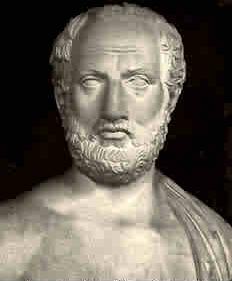
“Actually, I prefer the Stones.”
Kessler defends the claim that her books warrant the “nonfiction” designation by referring to the way the ancient Greeks practiced historical writing. Citing Thucydides’ History of the Peloponnesian War (written about 430 B.C.) as an example, she points out that ancient writers added speeches and other constructed elements to works accepted as histories. But it makes no sense to argue that her books should be considered “nonfiction history” as that term is understood today because they conform to criteria used by the ancient Greeks. It’s rather like arguing that because your laboratory work aligns with the procedures of 15th century alchemists, your findings should be considered on a equivalent footing with results based on 21st century scientific protocols.
I understand that Kessler wants to make Lennon’s life vivid for readers. Apparently her uncle, a Civil War historian, recommended she write a conventional biography of Lennon based on her research, but she decided not to because she felt that had “been done to death.” Choosing to write a biography that reads like a novel means, however, losing a key element of authentically nonfiction biography: pausing the narrative to explain when the facts are in doubt. In a conventional biography, every time a reader encounters phrases like “some sources say that . . . but” or “accounts of this incident vary, with X recording . . ,” the reader knows the author is flagging a place where the narrative can’t be definitively established. No matter how exhaustive an author’s research is, there are limits to what can be known with certainty, and the better a biographer or historian is, the more clearly he or she will help the reader distinguish where those limits are.
But by choosing to write books that read like novels, with no authorial voice interrupting the running text, Kessler places herself in the position of having to create a continuous narrative of events even when the events are contested or only partially known—often the case in the Beatles’ story. Yes, she includes footnotes, but only readers who examine them closely will be able to determine where the verifiable stops and the imagined begins (and in my opinion, at times it’s not clear even after such examination). And by its nature, an emotionally involving narrative acquires a weight that footnotes can never match.
It disturbs me that Kessler says “narrative history does not change or add to the truth in any way but tells the exact story of an event in such an interesting way that people want to listen!” It is impossible for any text to encompass “the exact story of an event,” as I think even the meticulously accurate Mark Lewisohn would attest. Kessler, is of course, free to write whatever she wants—and I would have no issue with what she’s doing if she acknowledged her works as a blend of nonfiction and fiction. I think readers, as well as all those people who were caught up in the Beatles story, deserve that clarity.
Note: You can read an excerpt from Kessler’s most recent book here. Hey Dullblog readers, take a look for yourselves and let us know what you think.


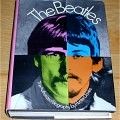

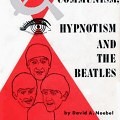



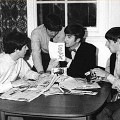
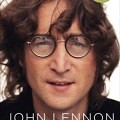
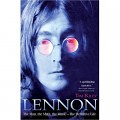
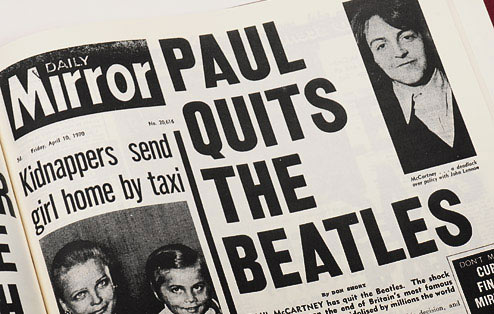
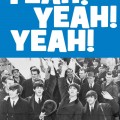
(How appropriate that this is the post that lured me out of lurker-dom). I also read Kessler’s interview, although I have not read any of her novels. I’m a historian who happens to like historical fiction; anything that gets someone interested in history, in my opinion, is a good thing.
But by the standards of historiography and historical methods which have been developed over centuries, what Kessler is writing is *not* history. The instant she tells us what John was thinking at any given moment or creates dialogue, no matter how factually based it is, she is veering into fiction. The fact that there is no clear separation between what we know as *fact* and what is the product of her interpretation or analysis discredits the work as a legitimate history. Marc Bloch, one of the key figures in historiography, addressed this very issue in his essential work, “History and Historians.” declaring flat out that “we have no right to make any assertion which cannot be verified.” He then discusses how all historians agree on the fact that Caesar defeated Pompey, but when they then proceed to describe Caesar’s (or Pompey’s thoughts) on the battle, they are veering into speculation which cannot be proven. When you veer into speculation, and interpretation, its the responsibility of the historian to clearly designate between where fact ends and their interpretation begins.
Kessler’s discussion of Thucidydes and his insertion of speeches that never actually happened ignores the fact that, according to most historians, Herodotus (who was generally less interesting than Thucidydes because he *didn’t* include the fictional speeches and stuck with a stricter recounting of facts), is considered the father of history. Thucydides told a story based on history, Herodotus told history, and there’s an essential difference. For a classical historian, Herodotus has more credibility than Thucydides. Period.
This isn’t to unfairly single out Kessler. Much (I’d go so far as to say most) of Beatles historiography does the same thing. Shout! is one example: you have Norman telling us during the White Album exactly what John and Paul thought about each other’s songs; you have Norman twisting Ivan Vaughn’s words and telling us Ivan’s thoughts: Ivan hesitated to introduce Paul to John because Ivan didn’t think Paul was a great enough guy, and Ivan only introduced great guys to John (which is a complete misreading of Ivan’s words in the Authorized Biography. And Shout! suffers from credibility on this issue because, with no citation of sources within the text or even a bibliography, there’s no way of separating Norman’s opinion from what his sources told him. Honestly, I’m stunned to see that Shout! was held in such high regard for so long; as a piece of legitimate history, it fails. Epically. (Apologies for the ranting historiography lecture I just subjected you to.
Great comment, @Ruth, please comment more! These issues are very very close to my heart as well — I came within a whisker of becoming a professional historian (Whew says History), so when Nancy showed me the interview, I went slightly bonkers. I’m also in the middle of writing a YA book set in ancient Rome, so I know the ins and outs of working with ancient historians — what they did well, what they’re useless for.
We initially planned to run this as a Slate-like roundtable, with Nancy, Devin and myself all chiming in, but eventually decided that it came down a bit too hard on one author. Were Kessler Lewisohn, such depth would be justified; otherwise, one voice is enough. I’m trying to see if there’s enthusiasm for a roundtable on Writing the Beatles, because Devin and I have tried to crack that nut from nearly opposite ends, and there are some interesting challenges inherent in it. IMHO, Kessler’s approach is an unsuccessful but admirable attempt to solve these challenges, and her misguided insistence on her work being history is also forced by Beatles-specific difficulties.
It’s important to remember that Shout! (1981) was the first genuine history of The Beatles. I flat-out disagree with Norman’s meanspirited and weirdly partisan take on the band, but I still remember the impact his writing made on me as a Beatle-mad 12-year-old. Shout! was the first book that showed the genuinely Shakespearean outlines of what happened between 1960 and 1970; I simply did not want it to end. I have similar feelings about the film The Compleat Beatles (1982); like Shout! it has been superseded by subsequent works, and its reading of events substantially weakened by more data, but it was essential for its time. Shout! and The Compleat Beatles were an almost reflexive reaction — a hasty scab being formed over the raw wound of Lennon’s murder. If that’s not a good enough metaphor, I’ll tell you what I thought when I just cued it up for the above link: the howling wind at the beginning of The Compleat Beatles echoes the psyche of every Beatles fan of that period. It was a cold cold bleak Christmas-is-cancelled kind of time.
Ironically, I think that Shout! and Kessler suffer from the same basic problem: they are in the tank for John Lennon. (As we all are to some degree, myself included — as the world is.) In addition to being a fascinating genius, John Lennon was a master con artist, who only got better as the years passed and he had more to protect. The 70s showed that he was leagues better than Paul at manipulating the fans and the press. (It’s a neat trick to get generations of Beatles fans to worship the guy who broke up the group, and dismiss the one who nearly died of heartbreak when it collapsed.)
This is a really tough point to get across if you don’t have personal experience with it, but addicts like Lennon are incredibly charming, lovable, fascinating, slippery, manipulative people. Add in Lennon’s fame, and the presence of Yoko, and there’s simply a tremendous amount of mythologizing, self- and otherwise, to dig through. It will take 100 years for the real John Lennon to be seen, and that’s assuming a reasonably complete, un-sanitized data dump will happen after Yoko’s death. (I have my doubts.) At times I think we are witnessing the creation of a saint, and that’s a dirty, cynical business — even if that’s exactly what Lennon was trying to do, which some evidence suggests is the case.
Kessler’s approach cannot do what I feel to be the most important job of Lennon biography, which is weigh the standard narrative so carefully crafted during Lennon’s life, and vastly enlarged after his death. Her nine volumes cannot shed much if any new light, because she has to rely on the standard narrative to carry her invented linking material. The authorial distance that Kessler rejects is an essential piece of real estate, the only place from which pointed appraisal can take place. If fans like the books, great, and in an era of fan-fic, her work was almost certainly inevitable. But it cannot reveal “the truth” about Lennon or his life, make it “come alive,” or even add much to the standard portrait. Her sourcing has to be ass-covering; it can’t make us see Lennon in a new way, because readers will assume that’s an error or artistic license on her part.
Kessler’s books have the same flaw as The Fifth Beatle: because they employ fiction to make the story read like drama, they can’t tell us anything we haven’t heard a thousand times before. So they actually obscure their subjects, both of whom I feel are too important not to be revealed in all their maddening complexity.
Thanks for the welcome, Michael. I am, by nature, a compulsive lurker, so welcomes help lure me out of my shell.
Your point that *you had to be there* to understand why and how Shout! had the impact it did is well taken. (It also helps prove my point about Shout!’s enduring credibility as a work of history, but I’m getting ahead of myself). I’m a generation Y’er, I wasn’t even born when Lennon was killed, and while I can understand the mechanism behind his conversion to martyr and icon, I don’t have the emotional attachment to it that people of previous generations do.
The fact that Shout! was the first major work of Beatles history, I agree, is of utmost importance, because so often in history what matters is not what narrative is correct, but which narrative comes first. The classic example would be the topic du-jour among modern historians, “Who was to blame for WWI?” Initially, for a slew of reasons, the answer was Germany, but that interpretation was simplistic and somewhat incorrect and few modern historians would argue now that the war was solely Germany’s fault.
The fact that Shout! was the first attempt to write about the Beatles as history is another reason its ultimate credibility is suspect: it lacks historical distance. It was written too close to the actual breakup, during the 70’s press wars between John and Paul; it was heavily influenced by Lennon Remembers and by Norman’s own (later admitted) bias, and it was written without sources that would become available in later years, such as The Complete Beatles Recording Sessions. Its pretty standard in history that secondary sources that were written too close to the actual event are inherently suspect *because* they have that emotional component; because evidence can’t have been viewed with impartiality; because we haven’t had enough time — either decades or centuries — to properly assess the impacts of the individual or the event. Shout! portrayed the truth of its time, and its author … it didn’t portray the truth as indicated by the facts, and that’s why (as well as its bias) its credibility has been slipping somewhat recently.
I agree completely with Kessler and Norman being in thrall of John, and John’s skill in manipulating the press and spinning the mythologies he wanted to create. Their bias in favor of John doesn’t bother me so much *until* they allow it to influence how and what evidence they use, which they ignore, and how they interpret that evidence. One of the most infuriating examples for me was Norman’s observation in the John bio that John had nothing but praise for ‘Eleanor Rigby’, even after the breakup. Of course, what Norman doesn’t say is that one of the reasons John may have continued to plug Eleanor Rigby is because he, John, continued to argue (falsely, by all other indications) that he had written at least half and up to 70% of the song. There’s no mention in the biography of John claiming primary authorship of ‘Eleanor Rigby’ at all, and it was a claim John made at least three times during the 70’s. However, as time passes and distance allows more impartiality to enter into the narrative, I think we’re getting a different view from Beatles authorities … Lewisohn states in “Tune In,” in the introduction no less, that John and Paul were equals. I don’t think Paul will ever be regarded as being as cool as John was, but I do believe that ultimately he’ll get the credit that is due him as a musician. Facts, after all, are stubborn things.
I don’t think Kessler’s work can become the definitive biography for the same reasons you stated. Personally, I’m of the opinion that the only definitive biography would be a dual biography that attempted to examine both John and Paul together — something along the lines of Doris Kearns Goodwin’s “Team of Rivals,” but instead of Lincoln as the sole lynchpin, both Lennon and McCartney at the core. Unfortunately, such biographies are rare in history.
Excellent, @Ruth, thank you.
My comments re: Shout! were not meant to excuse its flaws; quite the opposite. I meant to explain why its pro-Lennon, anti-McCartney (and anti-Harrison and Starr, FWIW) biases went down so easily at the time. The global reaction was incredibly powerful — something on the scale, I’d imagine, of the assassinations of the 60s. Shout! was the initial codification of the story, and as you say, such things are primary expressions of the emotion of the time in which they appear. Whereas later works — while always having bias and reflecting their time — have a better chance of doing other things besides. In your nice phrase, “Shout! portrayed the truth of it’s time,” and in doing so, became part of history. Goldman’s big flaw — apart from his own obvious bias — was being opposite of what the world wanted emotionally in 1987; the facts were never the point. Like Kessler, he pointed to interviews, but in both cases the research was largely immaterial. My own bias is: I think that inherent in Goldman’s adversarial stance is a felt sense of a higher burden of proof. And because Kessler’s recreating the Lennon we all know and love, I am especially skeptical of her motives. Her Lennon is too marketable to be accurate, whereas Goldman’s Lennon got exactly the marketplace reaction one would’ve expected in 1987.
Case in point: blaming Germany for WWI was, I would argue, necessary cover for the Versailles agreement. It had nothing to do with a sober and nuanced appraisal of the pre-1914 period; it was intellectually cowed or emotionally overwhelmed historians providing intellectual grease for the realpolitik of their time. (This is another story, but I ran up against precisely this function of history as an undergrad at Yale, believe it or not, and my revulsion towards it, precisely because I love and value history, is what moved me away from history and into comedy. This was a generational turn; comedy people of my generation use comedy to do the things, culturally, that used to be done by historians and public intellectuals. And I’d argue we do this because the academy and the press showed itself to be unable/unwilling to stand up to the government in the period of the Cold War.) German guilt was a simple, eminently useful argument; but it’s very usefulness is why it must come under heavy scrutiny, and luckily it has been: I reached over to my bookshelf to grab Hew Strachan’s The First World War, Volume I, and literally had a bookmark here: “What it seems fairly clear that Germany did not want [in 1914] was war.” [Emphasis his.]
I agree that Paul will eventually get the credit due to him as a musician, and as a creative person in general; I hope a more nuanced picture of Lennon, warts and all, emerges as well. Both are entirely remarkable people, with lots to say to future generations. Paul’s dilemma bothers me less because, gnats like Shout! aside, he’s rich and celebrated — Paul may not be considered cool, but anybody over the age of 15 who cares about cool is emotionally retarded (by which I mean to say is in the entertainment business). The issue with John — the papering over of his flaws in favor of a St. John persona — actually strengthens cultural attitudes that encourage artists to pursue self-destruction. (I have it on good authority that John Belushi acted the way he did, because he idolized Jimi Hendrix.)
The problem with the Beatles in this regard is that, as a cultural phenomenon, they are unlikely to get the study and regular reappraisals that other (and indeed much less important) historical events receive. This is to a large extent why I continue to pour time and words into Hey Dullblog; we were typing Mikal Gilmore’s Lennon-broke-up-the-group-on-purpose thesis years before Gilmore was able to get that bit of anathema past Wenner and into the pages of Rolling Stone. Because if you look at what each member did post India, without filtering their actions through the Shout! (and anti-Goldman) biases, what happened is pretty obvious. Wenner has a stake in the St. John myth — perhaps because he had egged Lennon on to his most sociopathic public statements in 1970. Which Lennon deeply regretted; this is why he disliked (or at least didn’t trust) Wenner for the rest of his life. But you’re not going to hear that until all parties, including Yoko, have passed on. “Lennon Remembers” was probably when The Beatles finally and irrevocably broke up, and I think Wenner senses that, and feels guilty. As well he should.
Thanks for your thoughts, Michael. I completely understand that you were trying to convey how the emotion of the time played into the impact of Shout! and your points were not an attempt to excuse Shout’s many flaws. I hope I didn’t come off as too aggressive in my denunciation of the work. Intellectually, I understand why Shout! had the impact it did. But because I didn’t live through the Beatles or John’s death, I can’t understand it emotionally. That’s where the disconnect is: the generational gap.
Your comment on Goldman reminds me of something I just read the other day, how it was decades or even longer before any American historian had the courage to admit that George III was, by the standards of his time, a relatively benign monarch, and not the tyrant that the Founding Fathers had depicted him as. (As late as the 1940’s, you have Eisenhower saying that American schoolkids were taught to hate the British from the moment they opened their history textbooks). The American public did not want to hear that its origin story, the Revolution, was prompted by anything other than the noblest and purest of motivations. The public of the 1980’s did not want to see John Lennon, the patron saint of rock and roll and icon of the 60’s, as a physically abusive, drug rattled, psychologically ravaged basket case. I understand that people wanted to dismiss Goldman’s work, and that that had a powerful impact on its terrible reputation (although I’d argue that Goldman’s evident glee at his portrayal of John and his numerous factual errors played a part as well).
I agree entirely with your assessment on why the initial version of “who caused WWI” was “blame Germany,” the Versailles treaty and the issue of reparations played a huge part. It was in the self interest of numerous governments: propaganda wise, economics wise, etc. to cast Germany as the sole villain. That’s true, as we’ve been discussing, of most initial narratives: they’re inherently suspect because they’re designed to serve the emotion and the truth of the moment. I get quite the kick out of it when ever anyone in the Beatles camp accuses the others of “revisionism,” because revisionism is *not* a dirty word — if it were, I’d still teach my college students that the blame for WWI *was* solely Germany’s fault, and that African-American slavery in the South was a relatively benign institution that cost slave owners more than it profited them. Those were both initial narratives that were wrong and have since been revised.
I think the Beatles are receiving more and more academic attention. There’s a professor at the college I work at that teaches a course on music in the 60’s, and there were some excellent books I read, including Reading The Beatles and The Cambridge Guide to the Beatles, which allowed for some excellent impartial analysis.
I know next to nothing about Rolling Stone, so perhaps you will be able to answer a question I’ve been wondering for some time: how is it that Wenner can continue to to argue the Lennon Remembers version when you have a remarkably valuable eyewitness in George Martin, declaring with remarkable consistency throughout every single decade, that John and Paul were creative equals, and that he regards Paul as a musical genius? Does Wenner simply dismiss Martin’s statements as favoritism for Paul? Because Martin was *there*, from the beginning to the end, wasn’t on drugs, and is perfectly willing to grant that John and Paul were the greater talents. I understand that Rolling Stone has invested itself in the Lennon Remembers narrative; I’m simply wondering how that narrative confronts the contradictory testimony of George Martin, if it does at all, or if it simply ignores it.
Thanks, @Ruth — and no worries, I didn’t think you were castigating me, I just wanted to be super-clear. The emotion of that time was incredibly intense, in part because Lennon’s murder came just a month after Reagan’s election. It was frequently cast — and subsequently felt — not just as an isolated tragedy, but as part of a larger “End of the Sixties,” a fundamental shift of causes and conditions, to use the Buddhist term. Well this wasn’t necessarily the case; what we call “The Sixties” kicked off with an assassination, and in the case of JFK, it was clearly as energizing as it was dispiriting. But the media spun Lennon’s murder in a deeply conservative manner, and much of the subsequent Lennon-worship has been a fierce reaction to that rhetorical gambit: “No, the Sixties are NOT over.” Certainly that was the case in 1981. Whatever the relationship of this is to the actual John Lennon, I think this pugnacity is a great thing, especially among the young — not just because I am politically liberal like the sun is hot, but because such organizing ideas are important.
The “End of the Sixties” gambit and innumerable others like it have provided cover for a lot of bullshit that’s occurred since, from the Teflon President to Hobby Lobby. It is a way to convince people who is winning and who is losing; it turns politics into the Harvard-Yale game, rather than an ongoing attempt by us to organize ourselves in a more harmonious and beneficial way. To me, one of the fundamental shifts of 1933-1980 liberalism and post-1980 liberalism (which defaults to conservative ideas even after the electorate says they want something different) is how it seems to agree that “The Sixties are over” — that is, that the “causes and conditions” favor conservatism.
My dog-in-the-manger attitude about St. John is simply this: I think the ideas wrapped up in “The Sixties” are much, much too important to rest on the shoulders of one English guitar player, no matter how charismatic. I think a lot of Lennon fans could have tolerated Goldman’s take on Lennon — or let’s be honest, his facts were what were most galling — if they hadn’t felt politically disenfranchised already. Reversing the Sixties was one of the battle cries of Reaganism, and admitting, even for a second, that John Lennon was a mess (and particularly a drug addict, and a hitter, and a cheapskate) seemed to mean that the GOP had been right all along. Which brings me to why I hit “reply” in the first place, your question about Jann Wenner and George Martin.
Wenner, and Yoko, and ilk, continue to argue their version because its not about the literal truth; I mean, we don’t need George Martin to tell us so, it’s obvious Paul McC is a musical genius, and that he and John were absolutely, utterly equal. (In fact, I suspect that even George and Ringo swung a lot more weight within the group than we realize, at least before ’68.) People like Wenner and Yoko are very invested in a world where some people are “straights” and others are rebels or artists. George Martin was and is a “straight.” He’s the generation directly before them, the one they rebelled against, the generation that wore ties to work and cut their hair and didn’t fight back. So far from George Martin’s view being something to explain away, it’s actually PROOF that Lennon was the genius and Paul was a straight-in-artist’s-clothing. (That’s why RS panned RAM; that’s why they couldn’t hear it clearly.) That somebody like Martin understood Paul more than he did John, strengthens Wenner’s narrative, rather than weakening it.
The interesting thing is how narratives like Wenner’s and Yoko’s fit perfectly into the larger narrative I was talking about earlier, the one that claims “causes and conditions” favor conservatism. Yoko cannot be avant-garde without the perception of a permanent, stable, conservative majority to define her art (and self) against. Wenner can’t be a hippie without that same attitude. Perceiving conservatism as the baseline is fundamental to their self-images; and it’s also what allows them to have great wealth, power, and access while still believing that they are apart from “the straights” who have wealth, power and access. Lennon had this same attitude; it was what allowed him to write “Imagine” while living in a mansion.
But of course this doesn’t track at all with reality. As an artist, Yoko wasn’t particularly avant garde in 1968, and she certainly isn’t now; Wenner’s great success (which I am grateful for) has been to commodify the counterculture in a perfectly capitalist way, and he had to be perfectly in tune with 95% of “straightness” to do that. Contemporary America is NOT the conservative place they grew up, and this strategy, while it works for them personally, is not, in the end, a sound basis for political change. If you believe that the world is mostly “straights” that you and a few enlightened others have to rebel against, the moment you get old, or tired, or have kids, or get sick, you default to a fundamentally conservative worldview. This is how you get hippie tycoons, and in the end the tycoon-ness is what’s at the bone; the hippie-ness is just the wrapping.
Excellent points both, Nancy and Ruth. I just read over the excerpt and while it has a romantic quality it’s clearly speculation and guess work about conversations that may or may not have happened that way on the given day. Particularly galling was the supposed excursions into John’s mind. “Imagine….” The difference between a great historian, like Lewisohn, and this is Lewisohn’s courage to summarize what can’t be presented in detail, clarify speculation when he’s forced to deal in it, and ability to nuance a reference to a Beatles song used in a foreign context in a way that brings a smile not a chagrin. Definitely won’t be wasting money on this project when there’s two more volumes of Lewisohn in the works to wait for.
Ruth, I echo what Michael said about Yoko and Jann Wenner’s investment in Lennon as a capital-A Artist, defined against “straights.” I would add that denigrating McCartney’s work relative to Lennon’s helps underwrite the narrative of the Beatles’ breakup as constructed by Yoko, Wenner, et. al. As articulated in Lennon’s “Rolling Stone” interviews, and in my opinion codified in “Shout!”, that take can be summed up thus: John was the true genius, Paul was a lesser light selfishly unwilling to accept John’s leadership, and that’s why the Beatles broke up.
As more recent investigations of the breakup have shown (I’m thinking of Gilmore and Doggett in particular), that’s a view of how things went down that’s hard to square with the facts. Once you start looking seriously at the Beatles as a band, and at the Lennon/McCartney partnership as that band’s central driver, that view falls apart.
Thank you, Nancy and Michael, for your reply on my question about Wenner and Martin. I understand your arguments, but I have to say I find the whole concept of the “straights and the rebels,” John vs. Paul, etc. somewhat disturbing: ideologies where facts don’t matter are always disturbing things.
I wonder, however, if Wenner has somewhat partially retreated from his full bore support of the Lennon myth: the last major push of it seems to have been in 2000, when RS re-issued Lennon Remembers and Wenner promoted a R&R HOF exhibit that played fast and loose with many facts, including ignoring some of Paul’s contributions to John’s Beatles’ work. Since then, you’ve had the Gilmore article in RS (although its interesting, to me, that the Gilmore article appeared nine months after Doggett’s book was published). Perhaps Wenner and RS are trying to regain a measure of credibility on Paul? And perhaps Norman is attempting the same with his upcoming biography on McCartney? I might simply be stuck in viewing this through the eyes of a historian: the general trick in historiography is to ask, “what will people one hundred/ two hundred years from now think of this work? What is its enduring value and credibility, based on bias, primary sources, prevailing narrative, the politics of the time it was written, etc?” By those standards, much of the work done in RS and by Norman lacks credibility. Perhaps they are starting to realize that.
Ruth, I couldn’t agree more that the whole “straights vs. rebels” is a deeply disturbing ideology. As it’s been applied to the Beatles story, I think it’s resulted in a great deal of damaging nonsense.
I think you’re right about Wenner and Norman doing some backpedaling as regards their former support of the Lennon myth. Even more interesting to me than the fact that Gilmore’s RS article on the breakup came out after Doggett’s book is the fact that some of Gilmore’s most interesting commentary got put up online but not printed in the magazine ( http://www.rollingstone.com/music/news/why-the-beatles-broke-up-the-story-behind-our-cover-20090818. My memory is that there used to be a link to Gilmore’s commentary on the page with the article, but there isn’t now — I had to go hunting for it.) So to me it looks like there’s still a degree of discomfort at RS about the extent to which the version of the breakup the magazine previously supported needs to be revised in the light of soberer investigation.
As for Norman’s forthcoming biography of McCartney, I have low expectations for it. Norman’s biography of Lennon was good because he obviously loves the man’s work; he managed to relate Lennon’s life responsibly while also making it clear that Lennon is an important artist. From everything Norman has said over the years, he dislikes the overwhelming majority of McCartney’s work, and that alone suggests the biography won’t be illuminating. My field is literature, and the only biographies of authors I find worth reading are those that evince an appreciation for the subject’s best work. That doesn’t mean being “in the tank” for the author, but being able to communicate throughout why we should care about him or her. I’ll be amazed if Norman’s biography of McCartney does that, given what he’s said previously.
FYI, Michael wrote a piece when Norman’s bio of McCartney was announced, and you can read the whole discussion here.
I thought commenter Annie McNeil expressed her reservations, which I share, very well: “My concern is that his true opinions have not actually changed (his past writings suggest way too much iron-clad egotism to make that a reasonable hope). I worry that his motivation here is to justify his former writings (and protect his legacy as the “premier Beatles biographer) in the wake of the ongoing sea-change in public opinion re: John v/ Paul — either by producing a truly horrific hatchet job, or by doing what is perhaps worse: writing a book carefully constructed to APPEAR fair, re-considered, capitulatory, etc., but which is imbrued with the implicit message that Paul is boring, unremarkable, unworthy of study, and that Norman really was right to despise him all these years, after all.
Please prove me wrong, Mr. Norman.”
@Ruth, it’s important to keep in mind that we’re not dealing with historians, here; we’re not even dealing with conventional journalists who believe in “objectivity” as a goal. Overheated rhetoric — the language of the fan — has been the stock-in-trade of rock criticism in general and RS in particular since before the beginning. Plus, there’s the motive of selling newspapers; Wenner’s partisan coverage of The Beatles during the crucial post-breakup/lawsuit period was good business. “The historical record” was not their primary concern. And I’m speaking as someone who loves the pre-NYC RS as a magazine, think it did some fantastic journalism, and will be an essential source for future historians trying to figure out the period of 1968-73.
@Nancy, I think the backpedaling is due to generational changeover at RS. Slowly you’ve had a bunch of young editors with no great attachment to the “straights vs rebels” story so beloved by the Boomers, and the record has begun to speak. It will continue to speak.
Nancy, I agree that any backtracking RS is doing from its support of the LR narrative is tentative and defensive. My thoughts on Norman’s biography of John are, sadly, very similar to the ones you quoted by Annie. I don’t think Norman’s going to write “The Lives of Paul McCartney,” because overall, I don’t think the market wants it and because I do believe he’s trying to regain credibility on Paul. I believe Norman previewed the approach he intends to take on Paul’s work in the John bio, when he discussed John and Paul’s contradictory styles, describing Paul as a “matchless commercial songwriter” and John as an artist, poet, bohemian, rebel, etc. My guess is a book that, like the John bio, appears fair but still clearly regards Paul as inferior.
What I find so surprising about both the RS support of the LR narrative and Norman’s Shout! is how much authorial self-insertion is involved in both. That is perhaps the major quality of Norman’s that I can’t stomach: from Shout! to his obituary of George to the John bio, Norman’s work is just as much about his own personal viewpoint as it is about the facts. It took Norman decades before he personally could bring himself to be fair to Paul (a generosity he has still yet to extend to George), and so Norman ignored the wealth of evidence that did not support his own personal views. .
@Ruth, Norman is a product of Fleet Street, the place that turned bias into an art form. ‘Nuff said. Who knows where his animus towards Paul comes from? Could it be that he grew tired of how the British press gave The Beatles a pass during the mania days? Could it be that he respected John for being disdainful of this free pass (yet still taking advantage of it)? Who knows? But he’s simply not a trustworthy Vergil to the reader’s Dante.
And the vision of Lennon as unconcerned with commerciality is utter crap; it was John, not Paul, who bragged about having a formula for number one hits. John only stopped caring about writing hits when his songs stopped BEING hits, and any Lennon-observer who doesn’t acknowledge that particular home truth isn’t being honest about John or his relationship with Paul, post-1967. Does Norman really believe that John didn’t want to write a “Hey Jude”-scale hit about Yoko? Come on. When he found he couldn’t do it — that he’d lost the knack, or the marketplace had moved on, or however one wants to explain things — he suddenly stopped caring about it, and denigrated Paul for being able to do it. That Norman can’t see the self-serving nature of this means he’s really untrustworthy on Lennon. Lennon apologists tie themselves in all sorts of knots over what Paul did to drive John away post-Pepper, but to me — having been part of a successful writing partnership, and familiar with the peculiar mix of camaraderie and competition involved — it’s totally obvious what happened: Paul’s stuff started being the A-side, and Lennon’s ego couldn’t take it. (Few people’s could.)
Norman wrote a biography of Buddy Holly (“Rave On”) and Ruth is right about authorial self-insertion. The focus of that book is really young Philip, British teenager and Buddy Holly fan. He gets a lot wrong about Buddy’s early career and influences, and completely buys into Maria’s version of his last year.
Ruth, ODIrony, and Michael, thanks for your comments. Ruth, I especially appreciate your perspective as an historian, and the distinction you draw between Thucydides’ method and Herodotus.’ It makes sense that Thucydides is more read because he adds speeches, etc.; that’s the same thing I think Kessler is saying when she remarks that her way of writing Lennon’s life makes people want to read it.
I think it’s very human to be drawn to stories that read more like myths than like objective histories. Myths can be comforting in ways that nonfiction history isn’t, and offer more explanatory power and emotional resonance. But when real people and historical events are related in mythic ways, and the result is presented as nonfiction — that’s dangerous, and damaging.
Take “Shout!,” for example. Michael, that this book was “the first genuine history of the Beatles” is, to me, a real shame. I am, of course, glad that it helped you, and anyone else, appreciate the scope of the Beatles’ saga. But Norman’s heroes-and-villains take on the story unfortunately established the lenses through which that story was seen for years to come. More recent writing has revealed just how biased Norman’s version is. I’m grateful that writers like Mikal Gilmore, Peter Doggett, and Mark Lewisohn are currently offering more balanced takes.
That kind of balance shouldn’t be optional. I think that a writer of nonfiction biography or history incurs an ethical obligation to his or her subjects. It can be easy to forget, when writing (or reading) about figures as culturally huge as the Beatles that they and their families remain human beings who can be injured or wronged. That doesn’t mean negative things should be soft-pedaled, but it does mean making a genuine effort to be fair to the people you’re writing about. That’s what’s behind my insistence that writers should make it as clear as possible where the verifiable facts end and interpretation or speculation begin. A writer can interpret or speculate all he/she likes — I just want him or her to be upfront about doing so.
Here endeth the peroration. Can you tell that this subject activates my inner academic?
Agreed, Nancy — with the caveat that a work of history is inevitably a work of fiction. It is a story, a product of someone’s imagination. The difference — and I think it’s essential — is that the style of historical discourse is designed to ameliorate the fictionalization, while the style of fiction is designed to do exactly the opposite.
There is an intellectual humility in the best history, a sometimes explicit often tacit acknowledgment that this historian’s reading of events is just that: one reading of events. In fact, IMHO, there’s nothing more dangerous to the truth of a time than an historical reading that is too seductive, too powerful, too accepted. David Halberstam’s “Best and the Brightest” is a good example of this. And not for nothing are both Halberstam and Norman journalists (not historians) writing in the immediate aftermath of an event that they were both personally present at. Books like Shout! and Best and the Brightest aren’t history, and shouldn’t be given that weight. They are useful and worthy, however, even if their takes prove to be wrong.
Kessler’s series is fine for what it is; it is the author’s refusal to engage in these types of issues deeply, that make me question her judgment in ways that footnoting every phrase can’t reassure.
I’ve been wary of these books for a long time and have thought it very bizarre that these were a blend of fiction and fact…It’s one of the main reasons, among others, that I have not bothered with these books. After reading this article and the interview linked within, I’ve now gone from 99% sure I’ll never read her books to 100%. I want fact, not fanfiction blended with fact. The fact that she’s so dismissive and flippant toward anyone who has these legitimate concerns is another major turn-off.
It’s fine if these books are presented for what they are, which is historical fanfiction, but to peddle them as factual, 100% non-fiction biography is disingenuous, dangerous, and delusional (how’s that for alliteration?). Maybe I sound like I’m being a bit harsh, but as a lifelong Beatles fanatic, these things matter to me. She’ll never be confused for Mark Lewisohn, that’s for sure (contrast how he presented vol.1 of Tune In vs. these books).
I have to agree with Drew. The problem I have with this author fleshing out conversations and scenes is that the end result will be like the recent Brian Epstein graphic novel. Someone who isn’t quite as clever as the Beatles putting dialogue in their mouths.
Bookstores should have a special section for these nonfiction novelizations, so that if I ask the clerk where I can find Kessler’s book, I will be told to look in “disingenuous, dangerous, and delusional.”
Haha, I like it, the triple-D section!
More than the content of the books turning me off is her condescending and flippant attitude toward anyone who is raising these completely legitimate and valid concerns. She needs to get a grip and just accept that what she’s writing is fan fiction. Well researched, sure, but it’s fan fiction.
I have to laugh at you bringing up this old post in your list because when I recently mentioned that I’d seen Beatles fanfiction being sold as history, this was the series I was thinking of. I have really wanted to support more women writers in Beatles and so I gave these a look. I read sizeable chunks of at least three of the books, but was not impressed. I wondered how, er, highly they’re regarded in Beatles circles.
For one, I found them actually kind of … boring? If their aim is to try and excite-up history, it wasn’t working for me. The dialogue was banal, IMO, and has been PG-13d until it reads as rather silly. It’s John-focused, yes, but Paul is solely relegated to appearing now and then and shaking his head cutely or something. Cynthia is purported to be the inspiration behind a good number of songs, which, great, Cynthia needed some songs to be for her. AND. The author self-inserts, literally; there were some portions of story where I couldn’t figure out the significance of certain characters until I realized the author had written herself and her friends into the narrative.
My impression overall is that they’re John/Cynthia fanfiction with a bit of self-insert thrown-in for good measure. Which, great! I don’t judge fanfiction in the slightest. Just, it’s supposed to be free and nobody takes it too seriously. I have absolutely found much better fanfiction, written with better and more fleshed-out characterization, amazing attention to detail, and narrative flair– and even footnotes– and nobody charges a penny for it.
Kristy, that’s interesting: I stopped with the first volume, for the reasons I enumerate in the post. The degree to which we’re in general losing the distinction between fiction and nonfiction greatly distresses me. When dealing with historical events and real people I believe it’s vital to document what can be determined, acknowledge what cannot, and clearly state what involves speculation.
Agreed. The author in this case is trying to claim actual historical fact, and also not acknowledging the biases directing the narrative, which is admittedly a long-standing problem with Beatles writing as discussed above re: Philip Norman. (The biases of the author of the John Lennon series are very clear in the books.)
Most fanfiction or hosting sites acknowledge openly that it’s all speculation and free from profit.